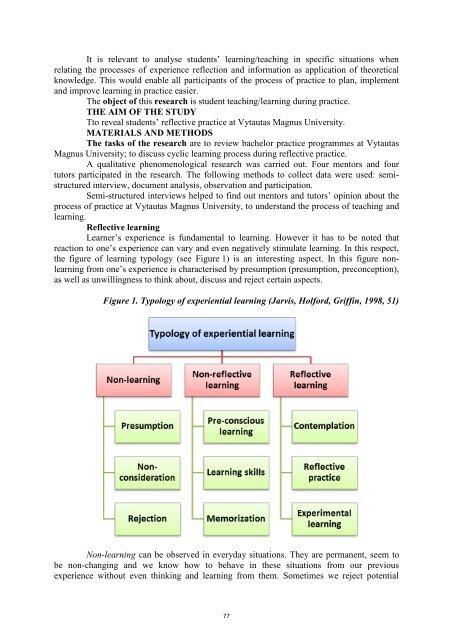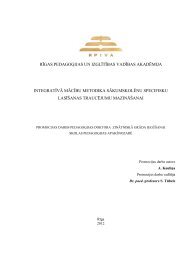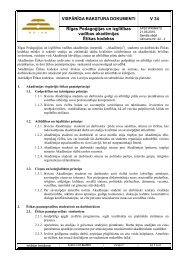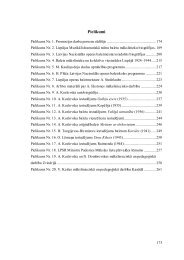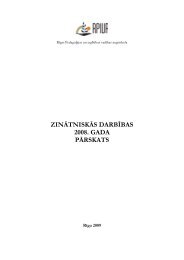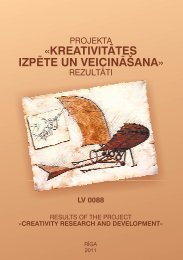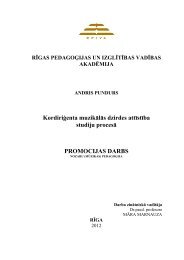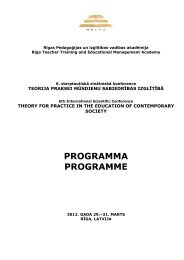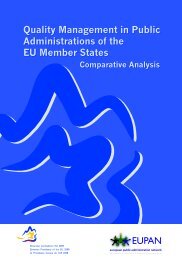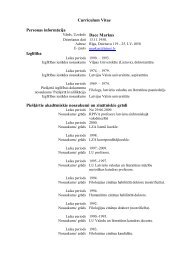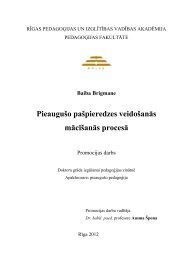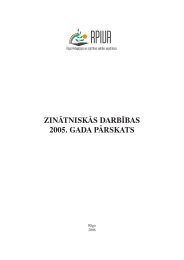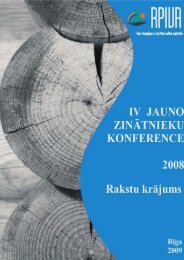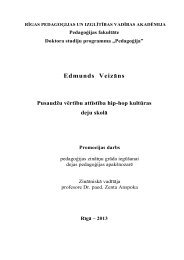saturs - rpiva
saturs - rpiva
saturs - rpiva
- No tags were found...
Create successful ePaper yourself
Turn your PDF publications into a flip-book with our unique Google optimized e-Paper software.
It is relevant to analyse students’ learning/teaching in specific situations when<br />
relating the processes of experience reflection and information as application of theoretical<br />
knowledge. This would enable all participants of the process of practice to plan, implement<br />
and improve learning in practice easier.<br />
The object of this research is student teaching/learning during practice.<br />
THE AIM OF THE STUDY<br />
Tto reveal students’ reflective practice at Vytautas Magnus University.<br />
MATERIALS AND METHODS<br />
The tasks of the research are to review bachelor practice programmes at Vytautas<br />
Magnus University; to discuss cyclic learning process during reflective practice.<br />
A qualitative phenomenological research was carried out. Four mentors and four<br />
tutors participated in the research. The following methods to collect data were used: semistructured<br />
interview, document analysis, observation and participation.<br />
Semi-structured interviews helped to find out mentors and tutors’ opinion about the<br />
process of practice at Vytautas Magnus University, to understand the process of teaching and<br />
learning.<br />
Reflective learning<br />
Learner’s experience is fundamental to learning. However it has to be noted that<br />
reaction to one’s experience can vary and even negatively stimulate learning. In this respect,<br />
the figure of learning typology (see Figure 1) is an interesting aspect. In this figure nonlearning<br />
from one’s experience is characterised by presumption (presumption, preconception),<br />
as well as unwillingness to think about, discuss and reject certain aspects.<br />
Figure 1. Typology of experiential learning (Jarvis, Holford, Griffin, 1998, 51)<br />
Non-learning can be observed in everyday situations. They are permanent, seem to<br />
be non-changing and we know how to behave in these situations from our previous<br />
experience without even thinking and learning from them. Sometimes we reject potential<br />
77


